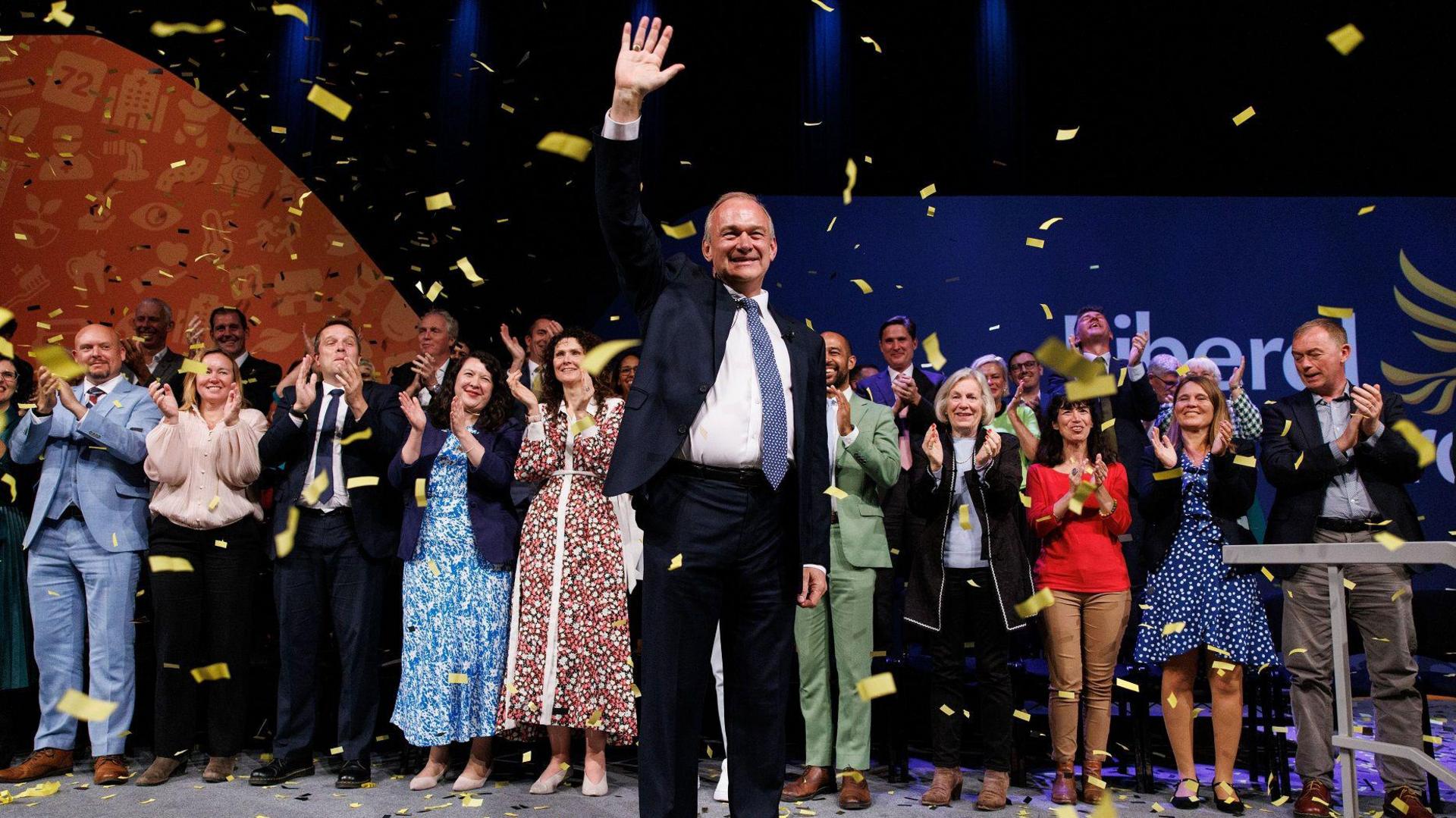Lib Dems aim to turn election success into influence

- Published
I don't think I have ever seen such undiluted joy at a party conference.
The Liberal Democrat gathering in Brighton amounted to the party giving itself a four-day pat on the back.
And little wonder: they were crushed to near irrelevance numerically in Parliament for nearly a decade.
Now, there are more Lib Dem MPs than ever before and they can't quite believe it.
There are three things I reckon tell you a lot about the Liberal Democrat strategy for 2024 – before, during and now after the election.
Geography, tone and message.
Firstly, geography.
It was a ruthless geographical focus, rather than a boom in enthusiasm for the Lib Dems, that explained their bumper general election result.
As the House of Commons Library has pointed out, external: "The Liberal Democrats won 72 seats with 12.2% of the vote. This was 61 seats more than in 2019, with an increased vote share of 0.7 percentage points."
They did this by focusing on where they could win.
The mastermind behind the strategy was the party’s director of field campaigns, Dave McCobb.
It is not often backroom teams get public adulation and namechecks, but Mr McCobb did in Sir Ed Davey’s speech - so central was he to the party's current standing.
- Published17 September 2024
- Published15 September 2024
Secondly, tone.
The colourful stunts, which continued in Brighton with Sir Ed Davey arriving on a jet ski, are part of a strategy to be seen as the agents of hope and optimism in British politics, in contrast with what the party sees as the current gloomfest from the government.
It goes beyond the stunts too to Sir Ed’s choice of language.
And thirdly, messaging.
They want to exude a message discipline - in other words talk over and over again - about a topic they seek to own: health and social care.
One senior figure said they’d had a call from a colleague worried that the focus of all three main three days of the conference was health and social care and fretted that perhaps there ought to be more variety.
No, came the answer, if the Lib Dems are seen as a one-issue party and that is the issue, so be it.
They conclude it is such a massive concern to so, so many people it is political turf they want to colonise.
Incidentally, Lib Dems are claiming privately there are senior figures in the government who are delighted that Liberal Democrat MP Layla Moran is the new chair of the Health and Social Care Select Committee, because they hope she will put pressure on the Department of Health to move more quickly on social care changes, and that might contribute to heaping pressure on the Treasury to find the money to do it.
Let’s see.
Lib Dem leader Ed Davey arrives at the conference
The conference maintained its homespun feel, with yellow T-shirt wearing activists wandering around with yellow buckets hawking for loose change donations.
In a nod to modernity, the buckets possessed a QR code on the outside - for digital donations - as well as coppers and some notes on the inside.
Meanwhile, the Liberal Democrat chief whip, Wendy Chamberlain, was handing out badges.
"72 in 24" they read, spelling out their numerical success.
But the balance of power in Parliament matters too, as well as the raw numbers.
Yes, the Lib Dems have 72 MPs, but Labour have an enormous majority.
As things stand, the government can do what it wants and choose to ignore the protestations and suggestions coming from the opposition parties.
Turning their swelled numbers into influence won't be easy.
But for the Liberal Democrats this is a nice problem to have, after years in the doldrums.
Don’t expect those Lib Dem smiles to ease just yet.